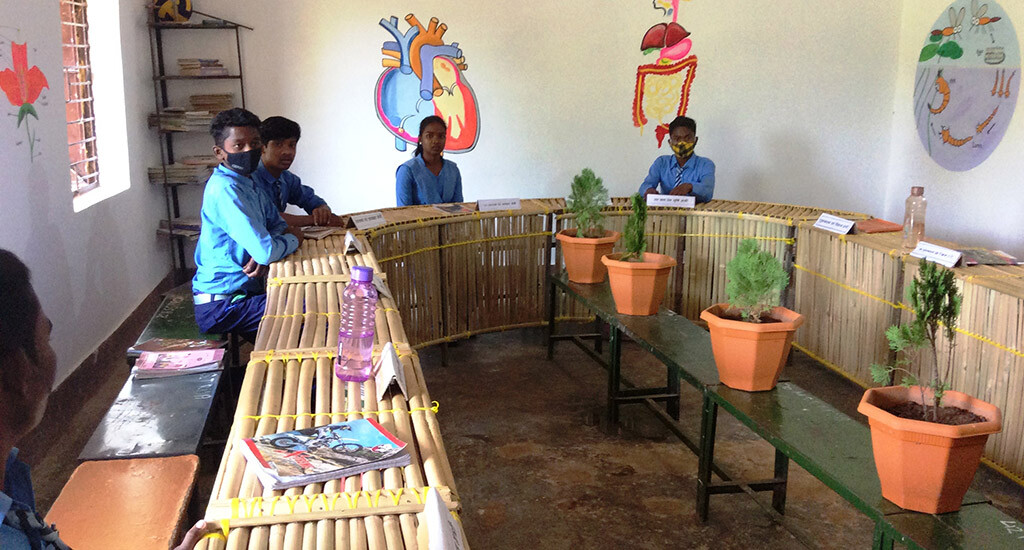When the bell rings after lunch at this rural school in Bastar, Chhattisgarh, a group of senior students rushes into a room.
But it is no ordinary room.
With its simple yet elegant and eco-friendly bamboo furniture arranged in a semicircle with potted plants at the centre, the room bears some resemblance to the boardrooms of businesses.
The students take their designated seats marked by name boards.
It is the bal sansad. “Parliament” is in session.
And the students – all of them are “ministers” holding important portfolios – have important matters to discuss.
Bal sansad begins
While a children’s parliament may be the norm in urban schools, it is an exception in Tiriya – a remote village of Bastar.
In the Government Higher Secondary School in Tiriya, the session of bal sansad, or children’s parliament, begins when the principal and two teachers join the students. Chetan Bhaghel, the prime minister, briefly explains the purpose of the meeting.
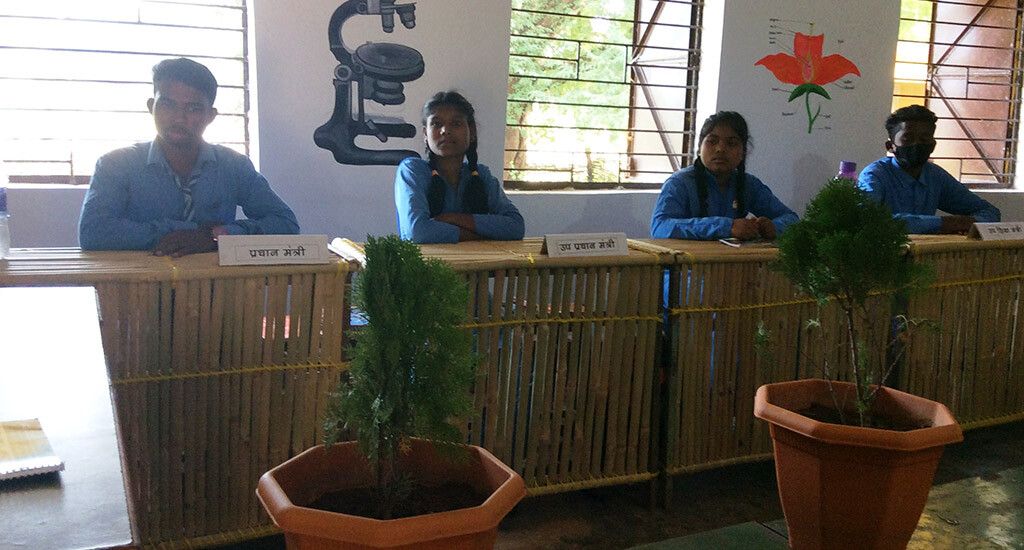
To a question from him, Paaul Nag, the health and sanitation minister says that they need more sanitiser bottles.
Then a few others holding different portfolios, like sports and agriculture, speak.
The bal sansad, and other initiatives, are making a deep difference to children’s lives in a remote tribal village where education is not a priority.
Bright allure of learning
Unlike most rural schools – which are often dilapidated and colourless – the Tiriya school is well-maintained with interesting wall murals. Chhattisgarh’s state bird, the hill mynah, is painted on one wall and the Dandami Maria tribe’s bison horn dance on another. The bright displays on classroom walls include the solar system, organs of the human body, the evaporation cycle and more.
The principal, Sandeep Kishore Bhatnagar, said that it is easier for children to understand science and maths concepts through pictures.
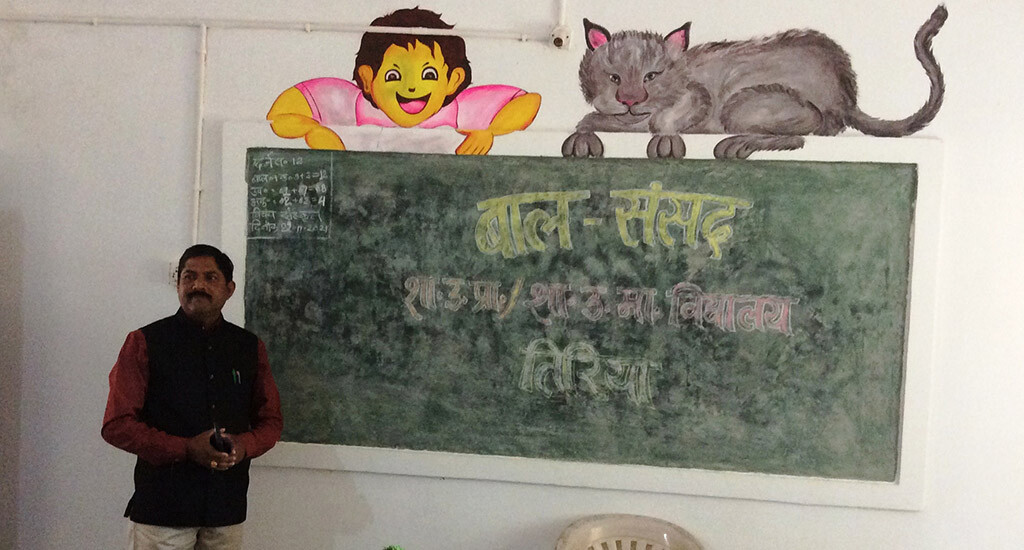
“In many tribal villages children skip classes to help their parents collect forest produce or cultivate lands,” he said. “Through attractive exterior and interior walls, we inspire them to attend school regularly and with interest.”
Care extends outside the classrooms too. A kitchen garden in a corner of the campus helps the children learn about growing food with judicious use of water.
Learning life skills
Back at the bal sansad, the discussions go on in full swing among the 18 ministers chosen from classes VI to XII. The sessions, which take place twice a month, help the students identify issues and find solutions – vital life skills.
The science and technology minister, Sukman Nag, shows a crane model made from waste. He reiterates the need to encourage such creative activities for students’ mental development in addition to waste management.
The agriculture minister, Thameshwari Kashyap, urges her companions to learn about growing food organically without pesticides in the kitchen garden.
Becoming a model school
On a visit to the school Rajat Bansal, collector of the Bastar district, announced it would be developed as a model school in 2022.
Since space is tight, the students are thrilled to hear this will bring resources for building more rooms.
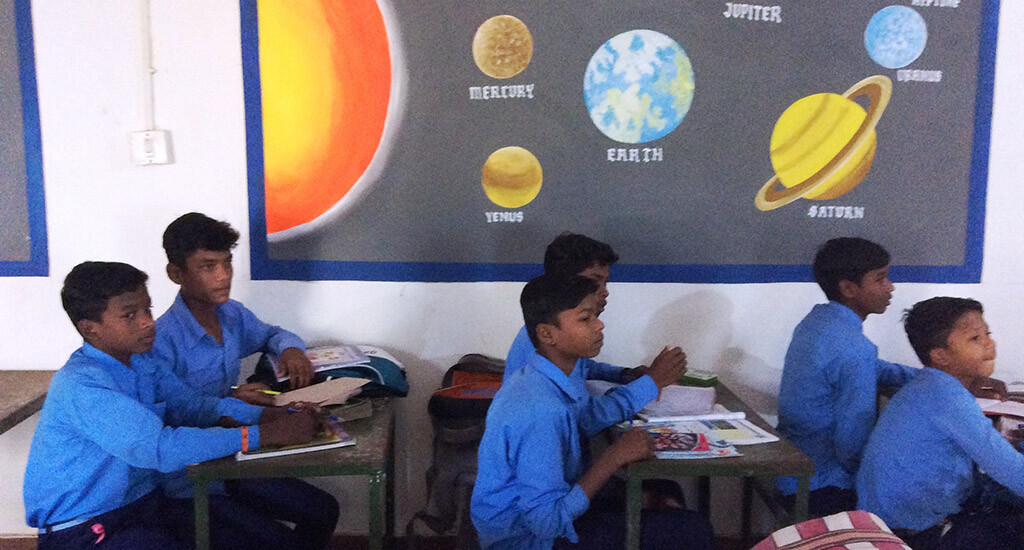
“We will allocate funds for building labs and other infrastructure as there is a lot of potential in Tiriya,” he said.
While the children’s parliament was started to address the issues at school, it has helped the pupils’ self-development too.
Most of them are tribal students and first generation learners. They have difficulty conversing in Hindi as they speak in local dialects such as Gondi and Halbi at home.
“Being a part of bal sansad has helped me speak Hindi without hesitation,” said Paaul Nag.
Turning to higher aspirations
During the pandemic, when the school was shut, online education was not possible because of connectivity issues. So the children had to rely on Unicef Seekh videos at a few spots where network coverage was available.
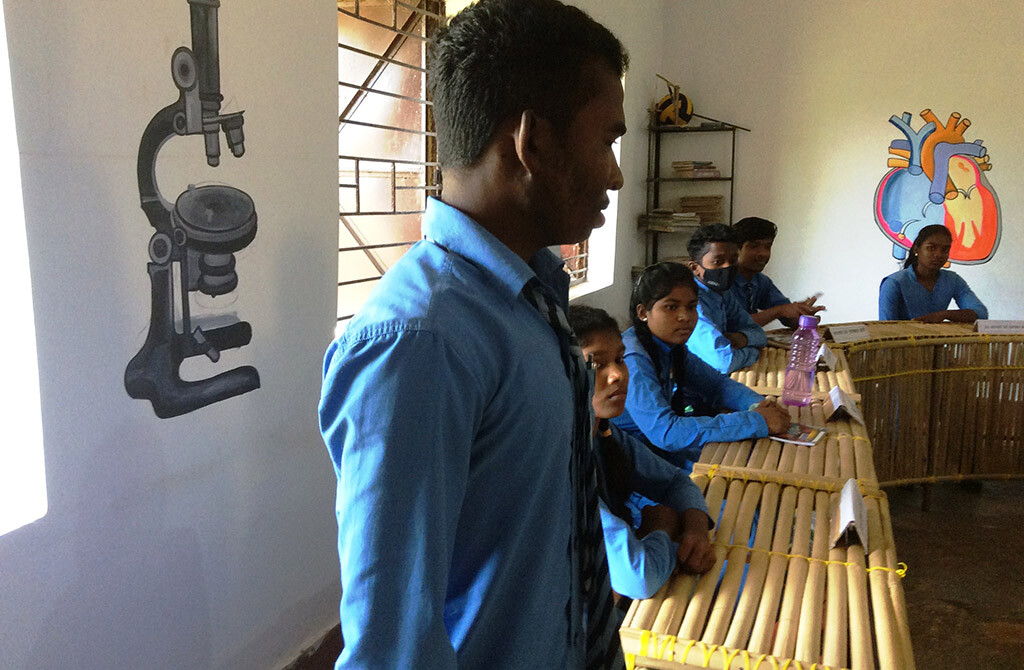
When the school reopened after the pandemic, the teachers were apprehensive. But the ministers spoke to students to ensure social distancing was in place.
“Since I am the health minister, I spoke to students personally to ensure sanitation,” said Nag.
All of them said they are more confident now – thanks to the school parliament.
Many have become interested in current affairs and sports. They have developed reading habits and are trying to build a library.
Some like, prime minister Chetan Bhaghel, said that they have learnt to voice their concerns to teachers and others without fear.
Bhaghel has become so confident and ambitious that he wants to “become like Rajat Bansal” – the very district collector who visited their school.
“I know it’s tough, but I will strive towards it,” he said.
